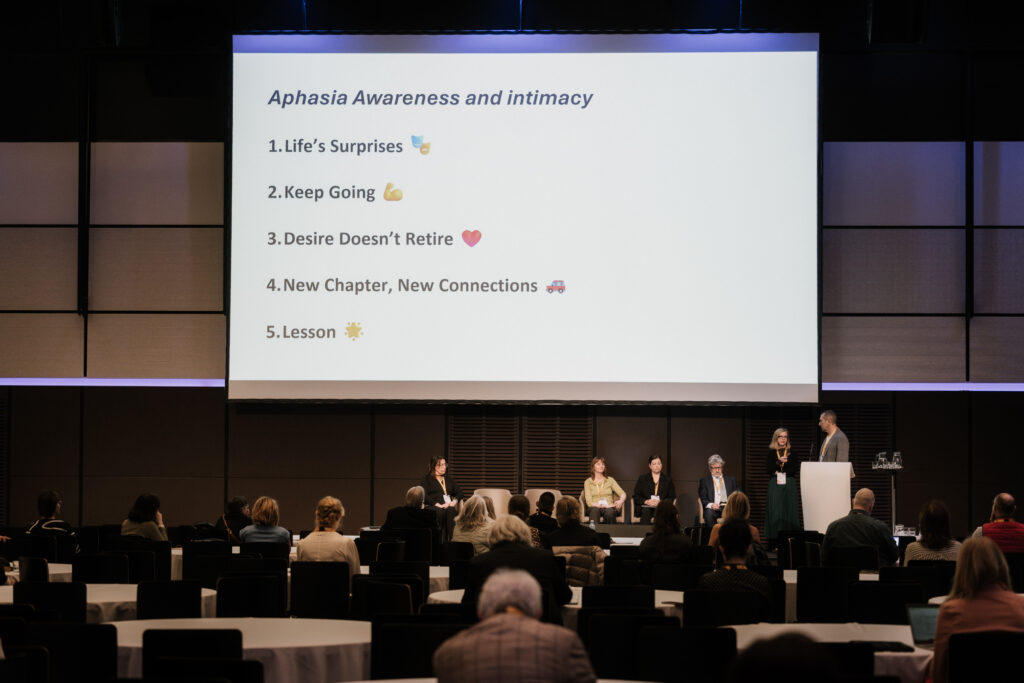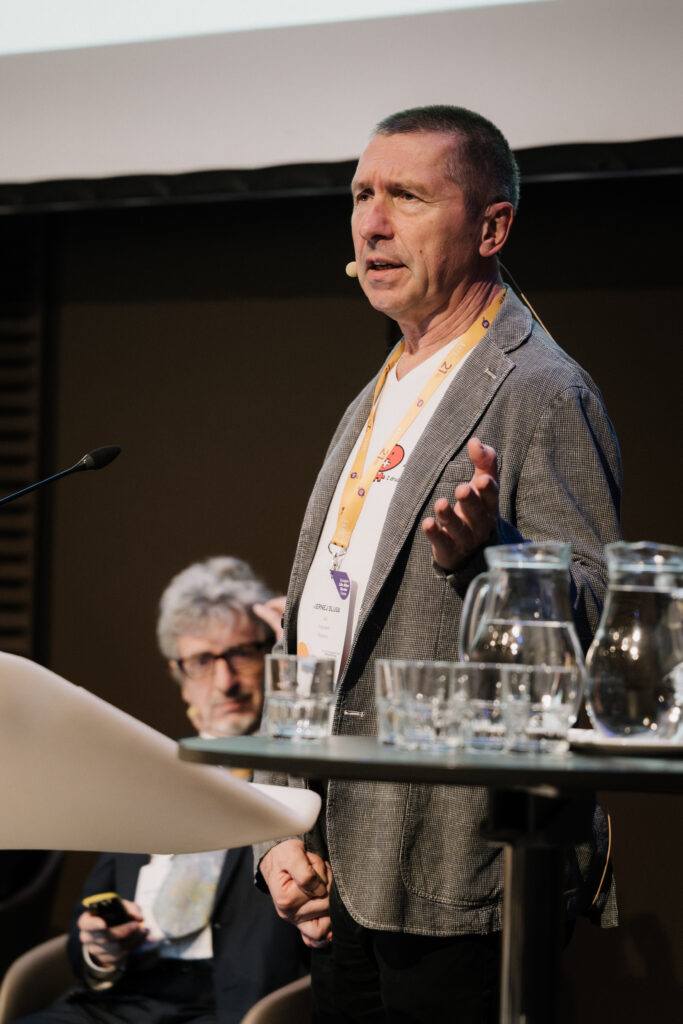Tatjana Erjavec
On March 10th and 11th 2025 the European Life After Stroke Forum took place in Prague. The forum was held at the Clarion Hotel Congress Centre. The conference centre’s lecture halls were our home from morning to evening, where lectures, workshops and poster presentations took place. The hotel complex includes a shopping centre, numerous restaurants, a fitness centre, a swimming pool, a gym and a relaxation area—essentially a small city within itself. It is almost an hour’s walk from the city centre and the old part of Prague but it has a well-connected subway system.
The forum members strive to improve the quality of treatment and life after stroke. The greatest added value of these meetings is the active participation of stroke survivors, who share their experiences, life stories, and suggestions. The co-organiser, SAFE – The Stroke Alliance for Europe, celebrates its 21st anniversary this year. The Slovenian Stroke Association is amongst its founding members.
This year nearly 300 participants from 28 European and six non-European countries attended the forum. The key topics included secondary prevention, the quality of life for women after stroke, the European Stroke Action Plan until 2030 and inclusive approaches to post-stroke life.

The scientific committee invited AIA (Association Internationale Aphasia) to present selected topics related to aphasia. In a parallel session participants included Professor Jean-Marie Annoni who also moderated the discussion. Personal life stories were shared by Jernej Sluga, with the support of Jelena Bartolović Vučković, and Hanka Mayhew, assisted by Marina Charalambous and Prof. Katarina Hilari.
Professor Jean-Marie Annoni briefly introduced AIA’s work with the LIHA (Spanish-American League of People with Aphasia) and highlighted its activities for the upcoming World Aphasia Day on 20th October 2025. The main themes for 2025 were raising awareness of aphasia and exploring psychological challenges intimacy among people with aphasia.
Two inspiring personal stories followed. Jernej Sluga, president of AIA, shared a short film about his journey. A successful businessman at 39, his life took an unexpected turn when he suffered a stroke. His unwavering determination, hard work and ability to embrace his new reality with humour and laughter have shaped his new life—as a business consultant, athlete, organiser, president of AIA, friend and much more.

Hanka Mayhew faced severe consequences after her stroke ten years ago. As a teacher of English for foreign students and a translator she struggled immensely with speech, comprehension and writing difficulties. Her principle was to stay engaged in activities that distracted her from the illness’ effects. Initially, horticulture played a crucial role in her recovery. Through regular physical exercise, psychological and speech therapy and participation in aphasia support groups she made steady progress. Today her speech is nearly flawless, she travels and she is independent in daily life. The loss of her husband two years ago was another devastating blow but she was sure he would be immensely proud of her performance at the forum. And so were the listeners.
Professor Katarina Hilari presented a proposal for updated aphasia treatment guidelines, outlining the timing, frequency, intensity and recommended approaches for therapy. The guidelines also emphasise the importance of continued care for stroke survivors in long-term rehabilitation.

